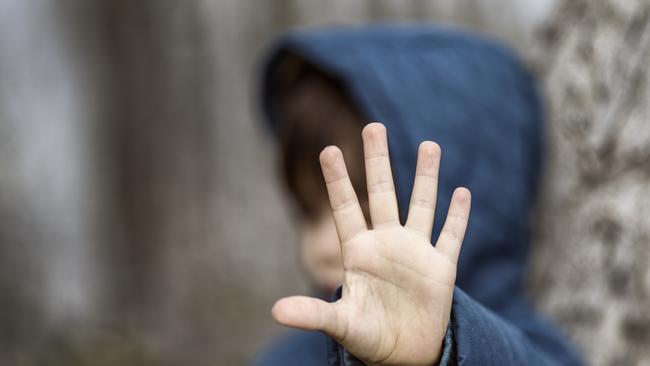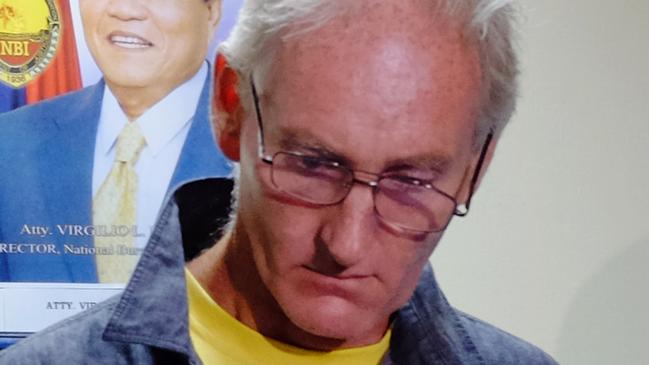Micro payments for alleged child exploitation in The Philippines
Austrac turned over a rock and found Westpac was facilitating an evil that is a blight on society.

The videos were selling on the dark web for $10,000 a pop. They were cheaply made and each sale went a long way in funding a lavish lifestyle in The Philippines.
By the time police caught up with former Melbourne man Peter Gerard Scully in 2015, he was regarded as one of the worst pedophiles in the world.
He was jailed for life two years later, convicted of raping, abusing and trafficking young children — two of whom reportedly were found dead under his home.
Yet he and his accomplices had tapped into a vile but profitable market. In Australia one Westpac client identified only as Customer 1 allegedly made 625 transactions — amounting to just under $136,000 — conducted in “patterns consistent with child exploitation typologies” between 2013 and July this year, according to court documents filed against the bank this week.
Some of that money allegedly went to a Philippines-based person later arrested for child trafficking and exploitation.
The Westpac customer’s account also shows he travelled to The Philippines himself, in 2014 and 2016, anti-money-laundering watchdog Austrac alleges.
That is just one of 12 Westpac customers Austrac refers to in its statement of claim against the bank as showing signs of child exploitation related transactions.
“I think it’s a really important reminder that the trade in child sexual exploitation and child sexual abuse images is in fact a trade — it’s a very lucrative trade for many,” Australia’s eSafety Commissioner Julie Inman Grant says.
The person behind one Thai-based website — where memberships were sold to access and share material — was earning $4m a year from it, she adds.

Evil worth $11.7bn
Inman Grant says Westpac called out micropayments made to Southeast Asia, “where we know this kind of pay-per-view live-streaming of child sexual abuse has been rife”.
“In places like The Philippines, if you are a child born into poverty you have a seven in 10 chance of being abused, manipulated or exploited by a family member or someone close to your family for economic purposes. It’s pretty devastating,” she says.
Austrac’s statement of claim details thousands of alleged transactions involving relatively small amounts. In the allegations relating to the $136,000 worth of transactions carried out by Customer 1, the average payment amounted to less than $200.
The scale of micropayments on a global scale are phenomenal. Indian Nobel prize-winning children’s rights activist Kailash Satyarthi said in September the industry continued to grow.
“A larger number of children are being involved in pornographic material production that has grown (to be a) $US8bn ($11.7bn) industry,” Satyarthi told Al Jazeera.
In 2016-17, it is estimated by the Australian Institute of Criminology that the costs of serious and organised crime involvement in human trafficking and child sexual exploitation in Australia ranged from $23.2m to $58m.

Fury and disbelief
Among the Westpac customers mentioned in Austrac’s statement of claim was one with a conviction for child sex offences.
Six of the 12 also had accounts allegedly showing evidence of them travelling to The Philippines and other Southeast Asian countries. It’s alleged that one, Customer 4, was responsible for 286 transfers totalling $32,000 in the 18 months after Westpac first identified activity “indicative of child exploitation typologies” on the account in March last year.
That customer is alleged to have travelled to The Philippines since that first red flag appeared.
Scott Morrison says the allegations Westpac had not previously detected transactions suspected of being linked to the horrific trade left him in “complete disbelief”.
“It is deeply disturbing, the nature of these transactions and the broader breaches that have occurred, and they’ll be facing the music over this and they should, and they’ve got to lift their game,” the Prime Minister told 2GB on Thursday.
“I mean, we’ve been through a royal commission. There were similar breaches that were found to have occurred at CommBank and they’ve been addressed. That resulted in the biggest commercial fine ever imposed on a company in Australia’s history under the prosecution that followed.
“And there’ll be one here, too. And I’m with all Australians in just complete disbelief and in fury.”
Asked on ABC radio if he has received guarantees that ANZ and National Australia Bank were “in the clear of similar scandals”, Morrison said: “These are things that the Treasury and the relevant agencies, particularly Austrac, will be following through and pursuing very closely with all agencies.”
An Australian Federal Police spokeswoman says investigators are “assessing the matter”.
“The AFP can confirm it has been working with Austrac and is aware of the individuals identified suspected of suspicious transactions which may relate to child sex offences,” the spokeswoman says.
“The AFP is currently assessing the matter and as such it would not be appropriate to comment further at this stage.”
Failure to monitor
Austrac alleges that Westpac did not introduce an “appropriate automated detection scenario” to monitor its LitePay service — where low fees are charged by the bank to send money overseas — until June last year.
This was more than 18 months after Austrac says it “provided reporting entities, including Westpac, with methodology briefs detailing the key indicators for the purchase of live-streaming child exploitation material — purchases that involved international funds transfers to The Philippines and Southeast Asia”.
“Prior to the introduction of (Westpac’s June 2018) detection scenario, Westpac failed to identify activity through the LitePay channel that was indicative of child exploitation risks,” Austrac says in its statement of claim.
“At no time has Westpac implemented an appropriate detection scenario to monitor for the known child exploitation typologies involving frequent low-value payments to The Philippines and Southeast Asia via non-LitePay channels.”
Under the Anti-Money Laundering and Counter-Terrorism Financing Act 2006, a bank must monitor its customers with a view to identify, mitigate and manage the risk of money laundering or terrorism being facilitated.
Responding to the Austrac allegations, Westpac chief executive Brian Hartzer says “these issues should never have occurred and should have been identified and rectified sooner”.
“It is disappointing that we have not met our own standards as well as regulatory expectations and requirements,” he says.
Australian Banking Association chief executive Anna Bligh says the banks are working with Austrac and public-private partnership group the Fintel Alliance to detect such payments.
“The banking industry works closely with Austrac to detect, deter and disrupt serious crimes such as money laundering, terrorism financing and child exploitation,” Bligh says.
“Banks will continue to work with Austrac and the Fintel Alliance to improve systems and bolster efforts to protect Australians by detecting, deterring and disrupting serious crimes.”
Hiding exploitation
According to a Fintel Alliance report released this month, some of the financial indicators of child exploitation payments include transactions of less than $500 and multiple payments of those sort of amounts across a period of time.
Suspicions also can be raised if customers indicate they plan to travel to “high-risk destinations” by their payments to airlines and hotels, along with withdrawals of money in such places.
“Many offenders will attempt to hide transactions related to the sexual exploitation of children, with reasons for the payments described as ‘accommodation’, ‘education’, ‘school’, ‘uniform’ or ‘medical bills’,” the report states.
“An offender may also make purchases of clothing items and toys for children, which may be an indicator of offending.”
An Austrac spokeswoman says, under the act, “reporting entities have an obligation to understand and manage their own risks based on their business and service offerings”.
“Austrac has a comprehensive industry education program in place to support regulated entities to meet their compliance and reporting obligations and understand their risks,” she says.
“Education is tailored for each sector and includes a range of guidance material and outreach activities.”
New methods
Inman Grant says “a lot of banks” are good at detecting anomalies in payments.
“In fact, someone had done a brute-force attack of my iTunes account and made 12 sequential (and) small payments — I guess to avoid detection. But they detected it. They do have pretty sophisticated detection algorithms in place,” she says.
But the allegations against Westpac did not come out of the blue, she says.
“I would say that there is always a lot of variability in terms of the levels of corporate social responsibility or diligence that any given organisation may focus on,” she tells The Australian.
“So there may be some financial and banking institutions that are more focused on this particular problem than others.”
More concerning, Inman Grant says, are the new players entering the global financial transactions market and the methods being used by the criminals.
“The global payments system’s structure is changing,” she says.
“We’ve had lots of luck working with some of the credit card providers over the years but you now see a lot of child sexual abuse producers, administrators and operators using very circuitous ways to garner payment.”
Some include the use of gift cards or prepaid cards. Others involve cryptocurrencies.
New methods also are looming, including Facebook’s proposed cryptocurrency Libra.
“We’ve got this convergence happening between … financial services and the tech sector,” Inman Grant says.
“And if we don’t get across this and have these technology companies specifically building safety by design into their new currencies, we could be allowing this trade to continue to thrive.”
-


